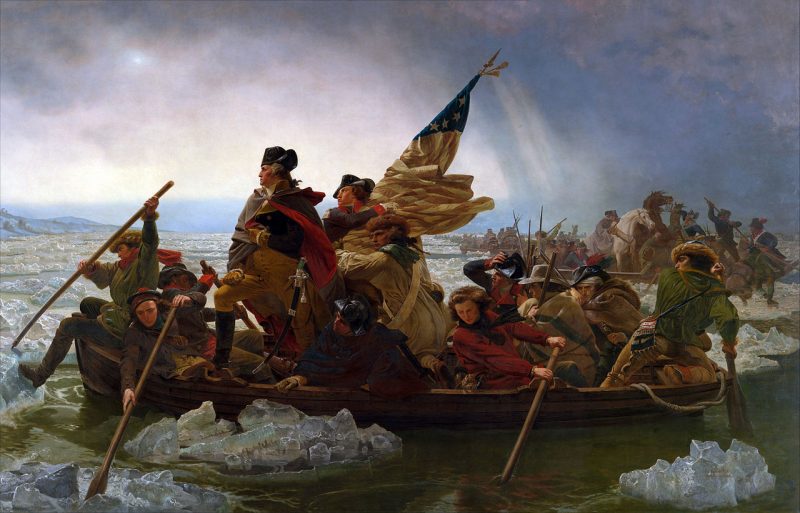2017 Washington’s Crossing Sale
We wish you a happy holiday and invite you to join us at an event in 2018—use coupon code “WashingtonCrossing2018” to save 15% on all events and memberships through January 3.
On December 25, 1776, the American Revolution hung by a thread. Beset by desertions after disasters in New York and New Jersey a ragged band of rebels gambled all on a bold strike against the Hessian garrisons in Trenton, New Jersey. Despite this success, most of the soldier’s enlistments would be up on New Year’s. General Washington desperately needed his veterans to stay.
Washington agreed to try the same appeal with the Continentals in Greene’s and Sullivan’s divisions [to convince the men to stay with the army for a few more weeks beyond the expiration of their enlistments]. He mustered the New England regiments and begged them to serve another six weeks. A sergeant remembered that the general “personally addressed us…told us that our services were greatly needed, and that we could od more for our country than we ever could at any future date, and in the most affectionate manner entreated us to stay.” Then the regimental commanders asked all who would stay to step forward. “The drums beat for volunteers,” one remembered, “but not a man turned out.” One explained that his comrades were “worn down with fatigue an privations, had their hearts fixed on home and comforts of the domestic circle.” The men watched as Washington “wheeled his horse about, rode in front of the regiment,” and spoke to them again. Long afterward, a sergeant still remembered his words.
“My brave fellows,” Washington began, “you have done all I asked you to do, and more than could be reasonably expected; but your country is at stake, your wives, your houses, and all that you hold dear. You have worn yourselves out with the fatigues and hardships, but we do not know how to spare you. If you will consent to stay one month longer; you will render that service to the cause of liberty, and to your country, which you probably can never do under any other circumstances.”
The drums rolled again. The sergeant recalled that “the soldiers felt the force of the appeal” and began to talk among themselves. One said, “I will remain if you will.” Another said, “We cannot go home under such circumstances.” A few men stepped forward, then several others, then many more and “their example was [followed] by nearly all who were fit for duty in the regiment, amounting to about two hundred volunteers.” These were veterans who understood what they were being asked to do. They knew well what the cost might be. One of them remembered later that nearly half the men who stepped forward would be killed in the fighting or dead of disease “soon after.”
—from Washington’s Crossing by David Hackett Fischer.


You must be logged in to post a comment.